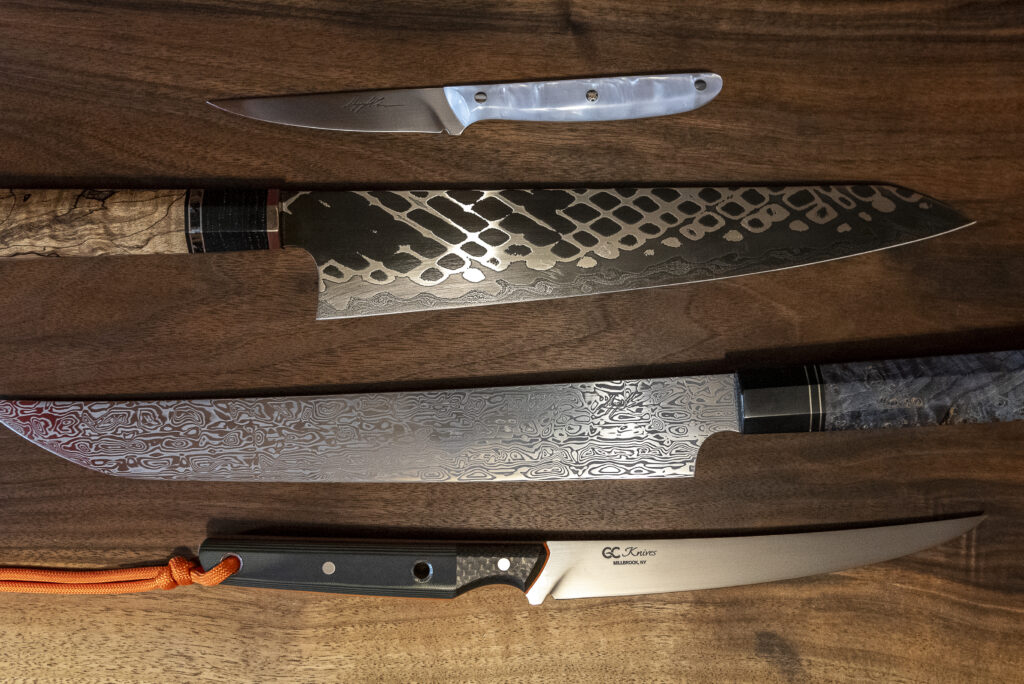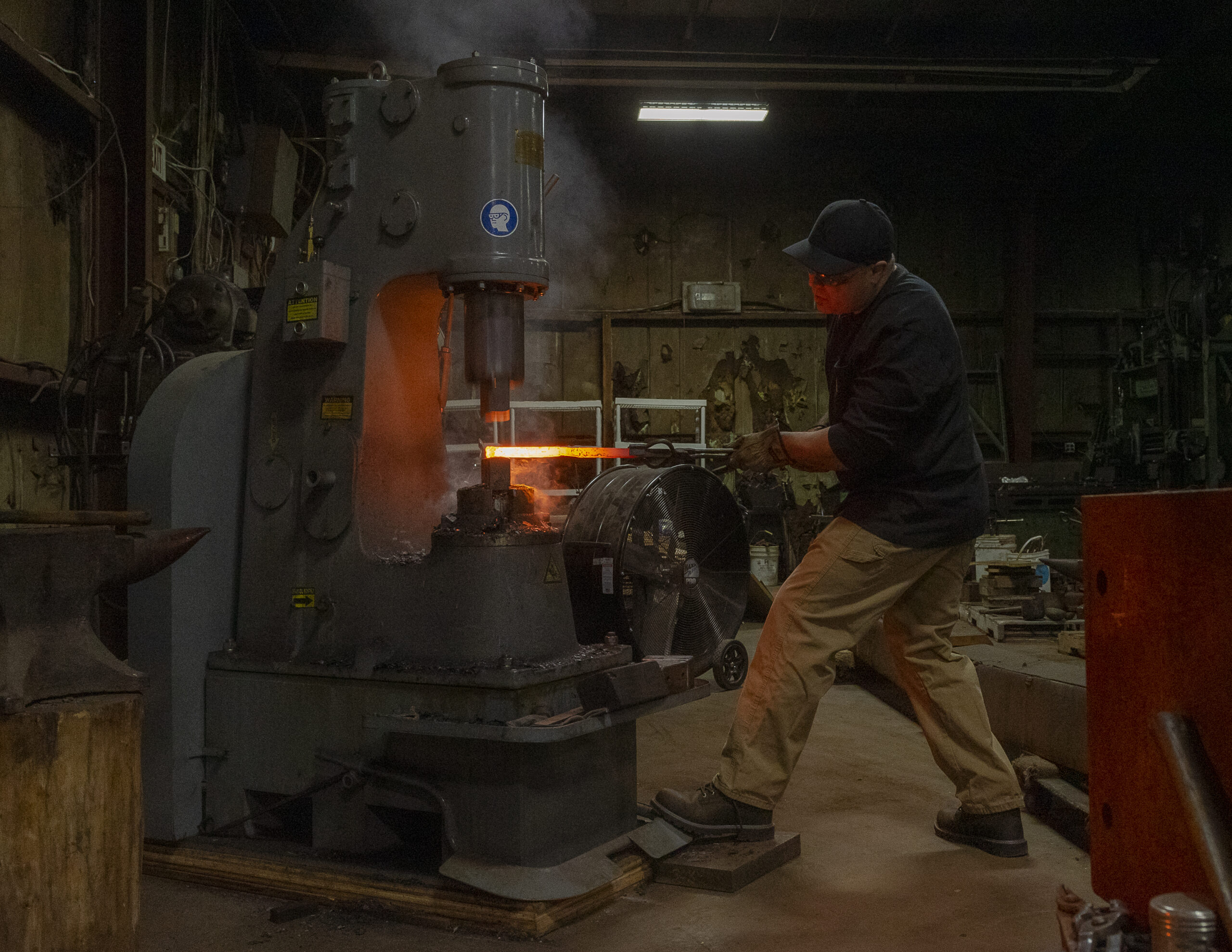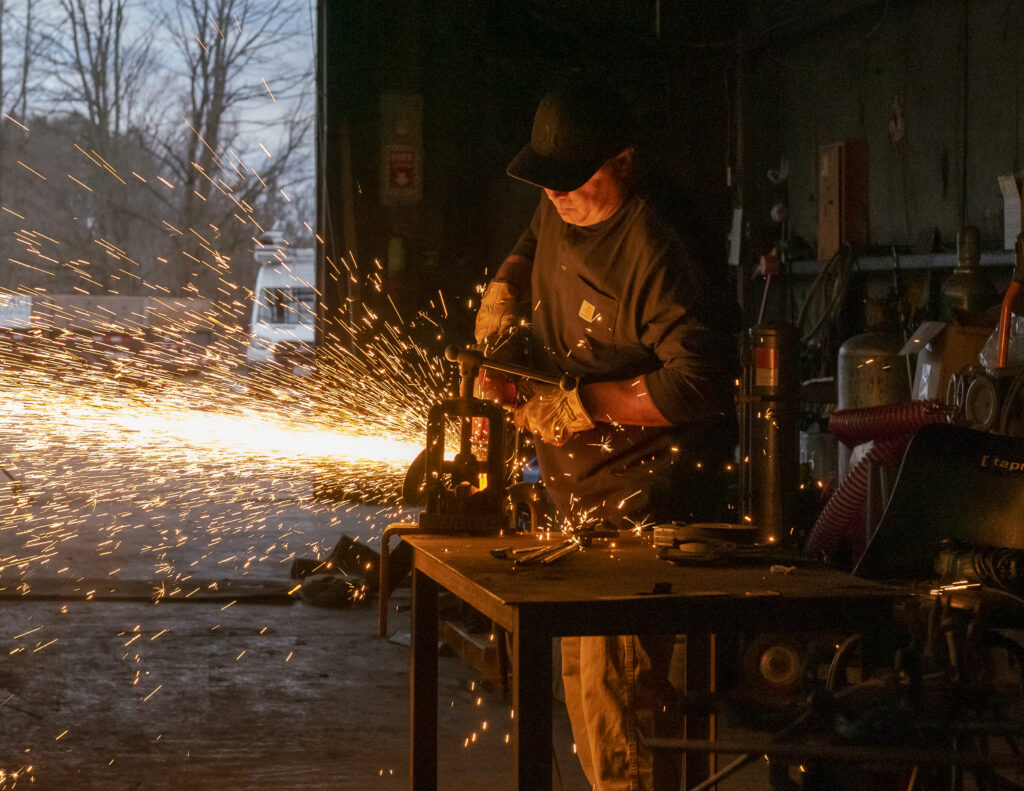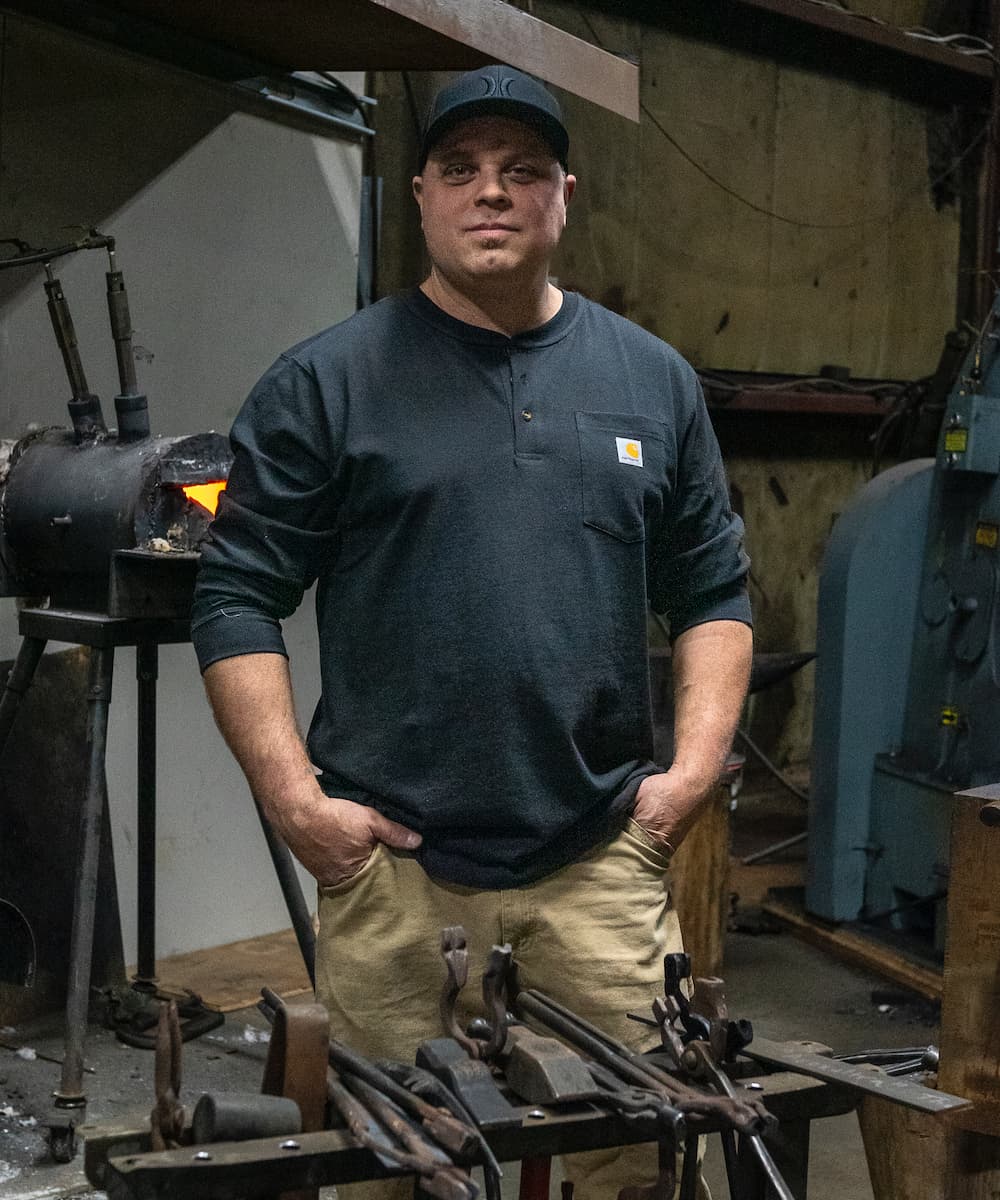Greg Cimms Knives: In Demand Around The World, Made In Millbrook
By ML Ball
Photos by: Sabrina Eberhard
As a kid growing up in Sharon, CT, Greg Cimms always gravitated toward swords. “Knives, swords, that sort of thing,” he says. It’s not surprising then that as an adult, Cimms now fills his days making…what else? Knives and swords. What is surprising is that he’s one of the world’s best, with clients around the globe paying thousands of dollars for his custom-made blades produced right here in Millbrook. “Probably more people know about me in Greece than in my hometown,” he says.

Cimms was first introduced to professional-grade knives while cooking at Charlotte’s, the fine dining restaurant between Millbrook and Amenia. Although he loved the “controlled chaos” of a kitchen, as he describes it, he was dissatisfied with the quality of knives typically used in the restaurant industry, and decided the best way to get top-quality knives was to make his own.
First, he needed a forge, so in 2013, he built one in his backyard. Next, he needed a teacher, whom he found in Joe Szilaski, a Master Bladesmith in Pine Plains. Then, he set to work.

In the ensuing ten years, Cimms has become one of the best in his field. In 2017, he received the Journeyman Smith certification from the American Bladesmith Society—no small feat. To obtain this highly demanding credential, you must be an apprentice for three years before you can test for the JS. Then, a knife you have made must be able to chop through two two-by-four blocks of wood, shave the hair off a person’s arm, cut through a one-inch-diameter free-hanging rope (in one swipe), and withstand being manually bent 90 degrees in a vice without breaking. That’s just the first part. In the second stage, you submit five knives which must be deemed flawless by eight Master Smith judges. Cimms passed.

His next goal? To become a Master Smith, the highest level of knifemaking. Cimms must again submit five knives for judging, but this time, made from Damascus steel, the ultimate in strength, sharpness, and artistry. “Damascus is basically a laminated steel,” Cimms explains, “involving layering two different types of steel, one upon another, in multiple layers. What makes it so highly prized is that you can control what the blade looks like. You can create different designs, like mosaics. Each Damascus is one of a kind, like a fingerprint, totally unique.”
Cimms also has a thriving fishing knife business. A fisherman himself, he knows what kinds of blades fishermen want and need, and he sells these everywhere as well.
But whether he’s making a knife to be judged by the highest professional standards or for amateur use in a home kitchen, what has set Cimms apart from his fellow knifemakers is his devotion to perfection. In his own words, he says it beautifully: “You can always tell when someone has put their heart into making something. A high-end custom piece that someone really cared about making—you look at it and know that it’s quality.” —gcknives.com

